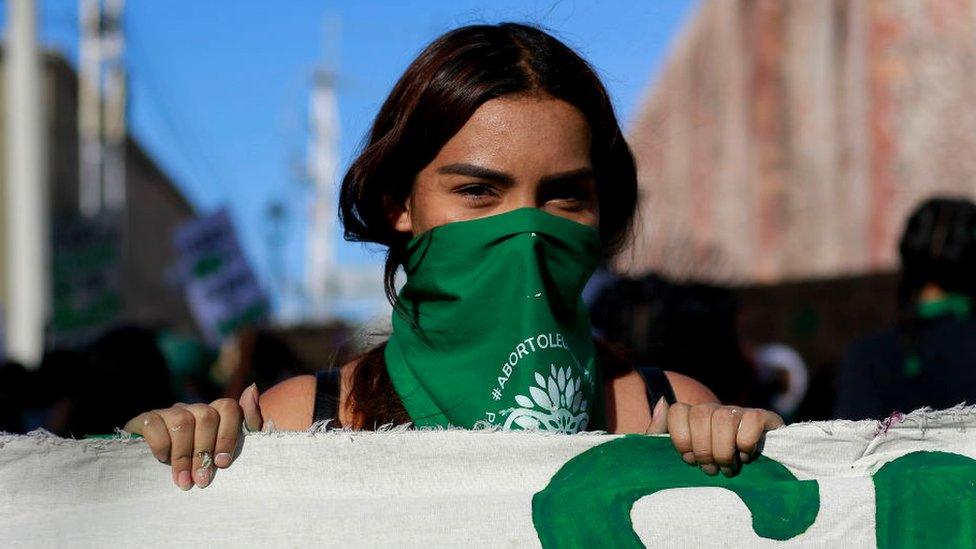Abortion in Mexico: Fight for rights just beginning, women say
- Published
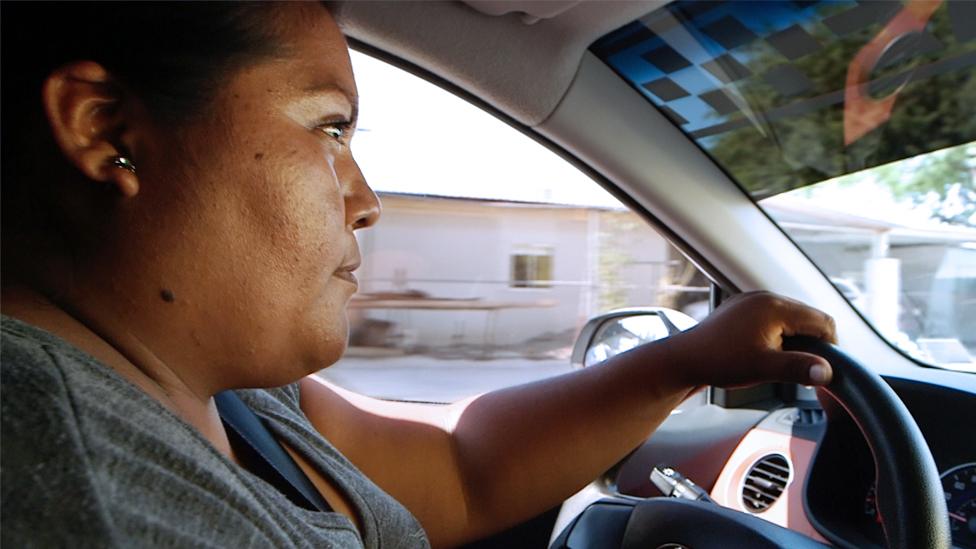
Paulina says she wanted to terminate her pregnancy, but was stopped by doctors, officials and priests
Few customers who get into Paulina Ramírez's taxi know her awful story.
But 20 years ago, the so-called Paulina Case made headlines around the world, her name synonymous with Mexico's strict rules and attitudes on abortion.
In 1999, aged 13, Paulina was raped and was left pregnant by a man who broke into her family's home. Following the brutal attack, she sought an abortion, fully legal in Mexico in cases of rape. However, Paulina was harangued by conservative doctors, state officials and priests who put up constant obstacles to stop her from terminating the pregnancy.
"I heard the doctors say 'I'm not doing it, they'll sack me. I'm not a murderer'," she recalls in her sweltering home-town of Mexicali on the US-Mexico border.
The campaign of intimidation was relentless. One doctor told Paulina she could bleed to death or be left sterile from an abortion. A priest told her she might be excommunicated.
"They brought pro-life representatives to my room who showed me pictures of dead foetuses and the image of Christ," she says. "It was a very difficult time, I was still dealing with the trauma of the rape."
Their cruel tactics worked. Eventually the 12-week deadline for an abortion passed and Paulina, still only a child herself, had to carry the baby to full term.
The suffering of that time has never fully left her but she is greatly encouraged by a unanimous ruling from Mexico's Supreme Court last month to decriminalise abortion. Specifically the decision referred to the law in the northern state of Coahuila but it set a precedent for the entire country.
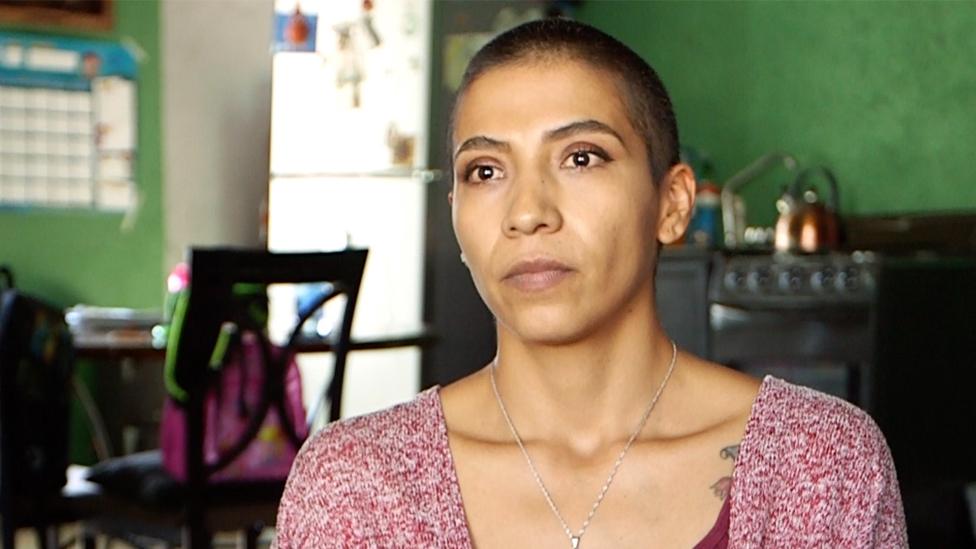
"There's still mountains to overcome," Teresa Mesa says
"I cried! I cried when I heard!" smiles Teresa Mesa, a single mother-of-three in Coahuila. When she became pregnant a fourth time, Teresa decided the most responsible thing to do was to abort - then illegal in her home state.
"It wasn't easy. At that time, there was no legal protection for women, no places of an adequate health standard to carry them out, and really a lot of social stigma."
Teresa hopes the measure will make it easier for other girls to have an abortion than it was for her, particularly as neighbouring Texas in the US moves in the opposite direction, towards much stricter control.
"This is just the start. There's still mountains to overcome before this is fully legal. We need proper health clinics which carry out abortions and doctors that are prepared to do them."
"And it's not just about normalising abortion," she continues, "but also making visible the domestic violence under which so many women live in Coahuila. Eight in every 10 women here experience some form of violence at home."
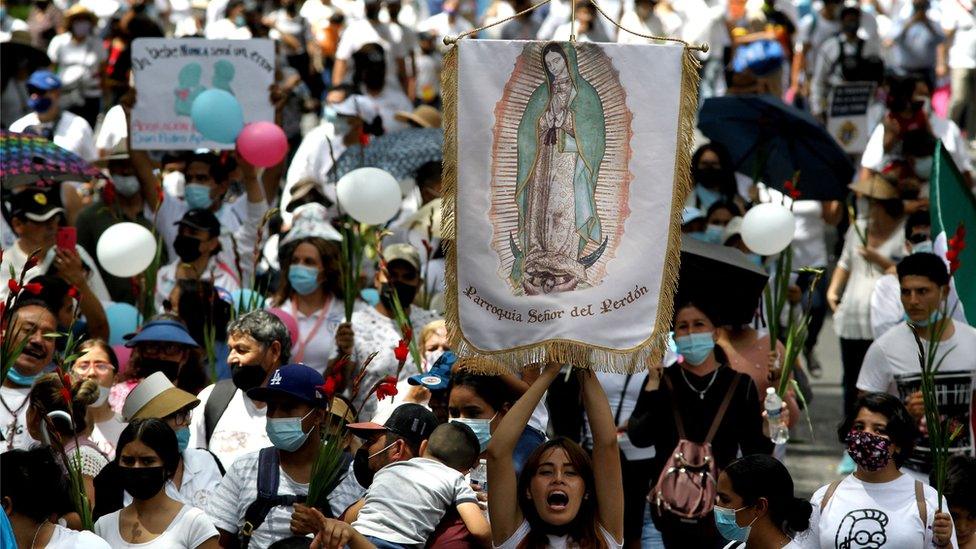
Abortion remains a deeply polarising issue in a country where the Catholic Church remains influential
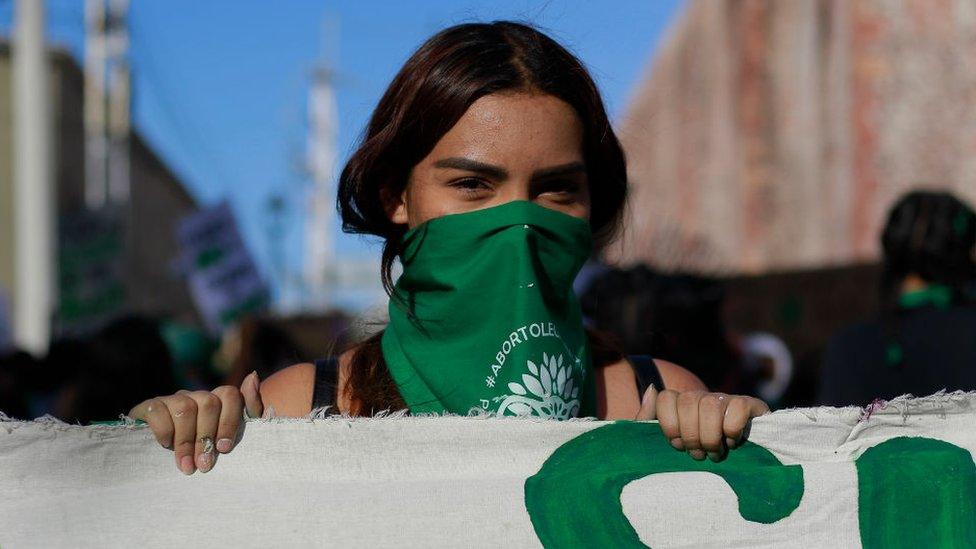
But across Latin American countries, attitudes on abortion are shifting
While the Supreme Court's ruling set a historic change into motion, there are several legal challenges ahead before safe abortions are available across the country.
In the meantime, many women - including Teresa - must turn instead to the Safe Abortion Network, an abortion rights' group which operates on the margins of the law. I met members of the Coahuila branch as they plastered posters with their contact details on them at bus stops around the state capital, Saltillo.
"We helped nearly 300 women last year to obtain abortion pills or travel to Mexico City," where abortion is legal, the group's founder Malu Reina told me.
Although their opponents paint them as somehow "promoting abortion", Ms Reina says that is a deliberate mischaracterisation, and that the co-operative provides sexual health education and support to vulnerable mothers in Coahuila's marginalised communities.
Nevertheless, there are some powerful forces in Mexico lined up against the new law. Mexico is Latin America's second-biggest Catholic nation and anti-abortion campaigners have held several demonstrations outside the Supreme Court recently. They say they are determined to block the court's decision.
"The Supreme Court has failed against the fundamental freedom of life," argues Rodrigo Ivan Cortes, president of the National Front for the Family.
"Now they also want to proceed against the fundamental freedom of the health sector and take out the freedom of conscious objection for doctors and nurses. That is very, very dangerous for a democratic country."
Still, such campaigners appear to be losing ground. Across Latin America, attitudes on abortion are shifting. In Chile, Argentina, Mexico and beyond, younger generations are slowly knocking down the traditional positions of their parents and grandparents.
Women across Latin America march for abortion rights
Paulina Ramírez's son is now 20 and they have a strong relationship. But she deeply resents her harrowing treatment as a teenage rape victim, shamed and victimised by those legally obliged to help her.
"Everyone decided for me except for me. All I wanted was to exercise my rights and they didn't let me."
Forced teenage pregnancies in impoverished circumstances will not vanish overnight in Mexico. But decriminalisation, Paulina says, is the first step to make sure no other girl goes through the same trauma she did.
- Published7 September 2021
